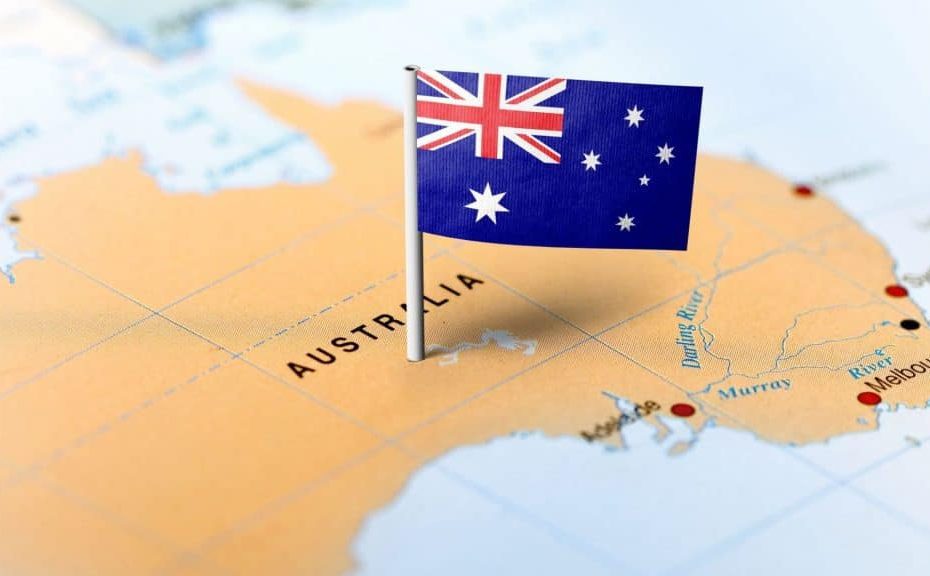Are you considering working in Australia? Maybe you’ve heard about the high salaries, relaxed work culture, and great work-life balance that the country is known for. While there is certainly truth to these expectations, the reality of working in Australia is more nuanced and complex.
From the job market and cost of living to workplace culture and visa requirements, there are many factors to consider before making the move. In this blog post, we will explore the expectations vs. reality of working in Australia, providing you with valuable insights and information to help you make an informed decision about your career plans. So, buckle up and join us on this journey of discovering what it’s really like to work in Australia!
Factors to Consider Before Moving to Australia For Work
Moving to Australia for work can be an exciting and life-changing decision. However, before leaping, there are several important factors that you should consider to ensure that your move is successful and enjoyable. Here are some of the key factors to consider before moving to Australia for work:
Visa requirements: Depending on your nationality and occupation, you may need a visa to work in Australia. It’s essential to research the different visa options available to you and ensure that you meet the requirements for your chosen visa.
Cost of living: Australia is known for its high cost of living, particularly in major cities like Sydney and Melbourne. Before moving, it’s important to research the cost of housing, transportation, food, and other expenses to ensure that you can afford to live comfortably.
Job market: While Australia has a relatively low unemployment rate, finding a job can still be challenging, particularly in certain industries or for individuals without specific skills or experience. It’s important to research the job market in your field and identify potential employers before making the move.
Workplace culture: Workplace culture in Australia can vary depending on the industry and workplace. It’s essential to research the expectations and norms of your specific industry and potential employer to ensure that you can adapt to the workplace culture.
Healthcare system: Australia has a publicly funded healthcare system, but it’s important to understand how it works and whether you will be eligible for coverage.
Education and childcare: If you have children, it’s important to research the education and childcare options in your chosen location to ensure that your children will have access to high-quality education and care.
Social life and support networks: Moving to a new country can be isolating, so it’s essential to consider how you will build a social life and support network in Australia. This may involve joining clubs or organizations, attending social events, or reaching out to ex-pat communities.
The Challenges You Might Face When Relocating to Work in Australia
Relocating to work in a new country can be both exciting and challenging. While Australia is known for its welcoming culture and high quality of life, there are still several challenges that foreigners may face when relocating to work in Australia. Here are some of the key challenges:
1. Cultural differences: Australia has a unique culture that can be vastly different from what foreigners may be accustomed to in their home countries. This can include differences in language, social norms, and workplace culture.
2. Visa requirements: As mentioned earlier, you must obtain a valid visa to work in Australia. The visa application process can be complex and time-consuming, and there is no guarantee that the application will be approved.
Would You Like To Apply For This Jobs/Sponsorship?
Enter Your Email Address HERE & You Will Receive a Notification About Your Application. If it shows "Subscribed" CLICK HERE to follow on Telegram for updates3. Finding a job: Finding a job in Australia can be challenging, particularly if you do not have specific skills or experience that are in demand. Competition for jobs can be high, and foreigners may face discrimination due to their nationality or lack of local experience.
4. Cost of living: Australia has a high cost of living, particularly in major cities like Sydney and Melbourne. Foreigners may struggle to afford the cost of housing, transportation, and other living expenses.
5. Building a social network: Moving to a new country can be isolating, and foreigners may struggle to build a social network and support system in Australia. This can be particularly difficult if the foreigner does not speak English fluently.
6. Homesickness: Being away from friends and family can be challenging, and foreigners may experience homesickness and loneliness while living and working in Australia.
Overview of Popular Industries Where You Can Work in Australia
Australia has a diverse economy with several thriving industries that offer opportunities for foreigners who wish to work in the country. It’s important to note that these industries are just a few examples of the opportunities available to foreigners who wish to work in Australia.
With the right skills and experience, there are opportunities in a wide range of industries in the country. Here is an overview of some of the most popular industries:
1. Mining: The mining industry is a major contributor to the Australian economy, particularly in Western Australia and Queensland. There are opportunities for foreigners with skills in mining engineering, geology, and resource management. Salaries in the mining industry can be high, with entry-level positions starting at around AUD 80,000 per year and senior positions earning over AUD 200,000 per year.
2. Healthcare: The healthcare industry is growing in Australia, with a particular demand for nurses, doctors, and aged care workers. Salaries in the healthcare industry can vary depending on the specific role and location, but nurses can expect to earn an average of AUD 70,000 per year, while doctors can earn over AUD 200,000 per year.
3. Information Technology (IT): The IT industry is thriving in Australia, particularly in cities like Sydney and Melbourne. There is a demand for workers with skills in software development, cybersecurity, and data analysis. Salaries in the IT industry can be high, with entry-level positions starting at around AUD 60,000 per year and senior positions earning over AUD 150,000 per year.
4. Education: Australia has a strong education system, and there are opportunities for foreigners who wish to work in the industry as teachers, tutors, or administrators. Salaries in the education industry can vary depending on the specific role and location, but teachers can expect to earn an average of AUD 70,000 per year.
5. Finance: The finance industry is thriving in Australia, particularly in cities like Sydney and Melbourne. There is a demand for workers with skills in finance, accounting, and banking. Salaries in the finance industry can be high, with entry-level positions starting at around AUD 60,000 per year and senior positions earning over AUD 200,000 per year.
6. Hospitality and Tourism: The hospitality and tourism industry is a major contributor to the Australian economy, with opportunities for foreigners in roles such as chefs, hotel managers, and tour guides. Salaries in the hospitality and tourism industry can vary depending on the specific role and location, but entry-level positions can start at around AUD 40,000 per year, with senior positions earning over AUD 100,000 per year.
7. Construction: The construction industry is a major contributor to the Australian economy, particularly in cities like Sydney and Melbourne. There is a demand for workers with skills in construction management, architecture, and engineering. Salaries in the construction industry can vary depending on the specific role and location, but entry-level positions can start at around AUD 50,000 per year, with senior positions earning over AUD 150,000 per year.
8. Agriculture: Australia has a large agricultural industry, with opportunities for foreigners in roles such as farm managers, agronomists, and animal scientists. Salaries in the agricultural industry can vary depending on the specific role and location, but entry-level positions can start at around AUD 50,000 per year, with senior positions earning over AUD 150,000 per year.
9. Retail: The retail industry is a major employer in Australia, with opportunities for foreigners in roles such as sales associates, store managers, and merchandisers. Salaries in the retail industry can vary depending on the specific role and location, but entry-level positions can start at around AUD 40,000 per year, with senior positions earning over AUD 100,000 per year.
10. Creative Arts: Australia has a thriving creative arts industry, with opportunities for foreigners in roles such as writers, actors, musicians, and graphic designers. Salaries in the creative arts industry can vary widely depending on the specific role and location, but entry-level positions can start at around AUD 30,000 per year, with senior positions earning over AUD 200,000 per year.
Expectations VS Reality
1. Expectation: Finding a job will be easy
Reality: While Australia has a relatively low unemployment rate, finding a job can still be challenging, particularly in certain industries or for individuals without specific skills or experience. It is important to be prepared to put in the time and effort to job search and to consider gaining additional skills or qualifications if necessary.
2. Expectation: High salaries
Reality: While some industries in Australia do offer high salaries, such as mining and finance, the cost of living in Australia can also be high, particularly in major cities like Sydney and Melbourne. It is important to research and realistically assess the salary range for your chosen industry and location before making any plans to work in Australia.
3. Expectation: A relaxed work culture
Reality: While Australia is known for its laid-back lifestyle, the work culture can vary depending on the industry and workplace. Some workplaces may have a more relaxed atmosphere, while others may have a more formal and hierarchical structure. It is important to research the workplace culture and expectations of your specific industry and employer.
4. Expectation: Good work-life balance
Reality: Australia has a strong culture of work-life balance, with many employers offering flexible working arrangements and generous vacation time. However, this may not always be the case for all industries or workplaces, and it is important to research and negotiate these arrangements with your employer.
5. Expectation: Easy to obtain a work visa
Reality: While there are a variety of work visas available for individuals seeking to work in Australia, the process of obtaining a visa can be complex and time-consuming. It is important to research the visa options and requirements and to seek the assistance of a registered migration agent if necessary.
6. Expectation: A welcoming and diverse workplace
Reality: Australia is known for its multicultural society and diverse population, but it is important to remember that discrimination and prejudice can still exist in the workplace. It is important to research the workplace culture and diversity policies of your potential employer and to seek support from relevant organizations if necessary.
Overall, working in Australia can be a rewarding experience, but it is important to research and realistically assess the expectations and realities of working in your chosen industry and location.
Conclusion
Moving to Australia for work can be an exciting opportunity for foreigners who are looking to start a new chapter in their careers. However, it’s important to carefully consider the factors before making the move. Factors such as the cost of living, visa requirements, and the job market should be carefully evaluated before making any decisions.
In this blog post, we discussed some of the factors to consider before moving to Australia for work, including the cost of living, visa requirements, and job prospects. We also highlighted some of the challenges that foreigners might face when relocating to Australia for work, such as cultural differences and language barriers.
Additionally, we provided an overview of some of the most popular industries in that foreigners can work in Australia, including job prospects and potential salaries. From mining to education, there are opportunities in a wide range of industries for foreigners who have the right skills and experience.
Ultimately, moving to Australia for work can be a rewarding experience for foreigners who are willing to put in the time and effort to make it work. By carefully considering the factors and doing your research, you can make an informed decision and set yourself up for success in your new career.







I am interested